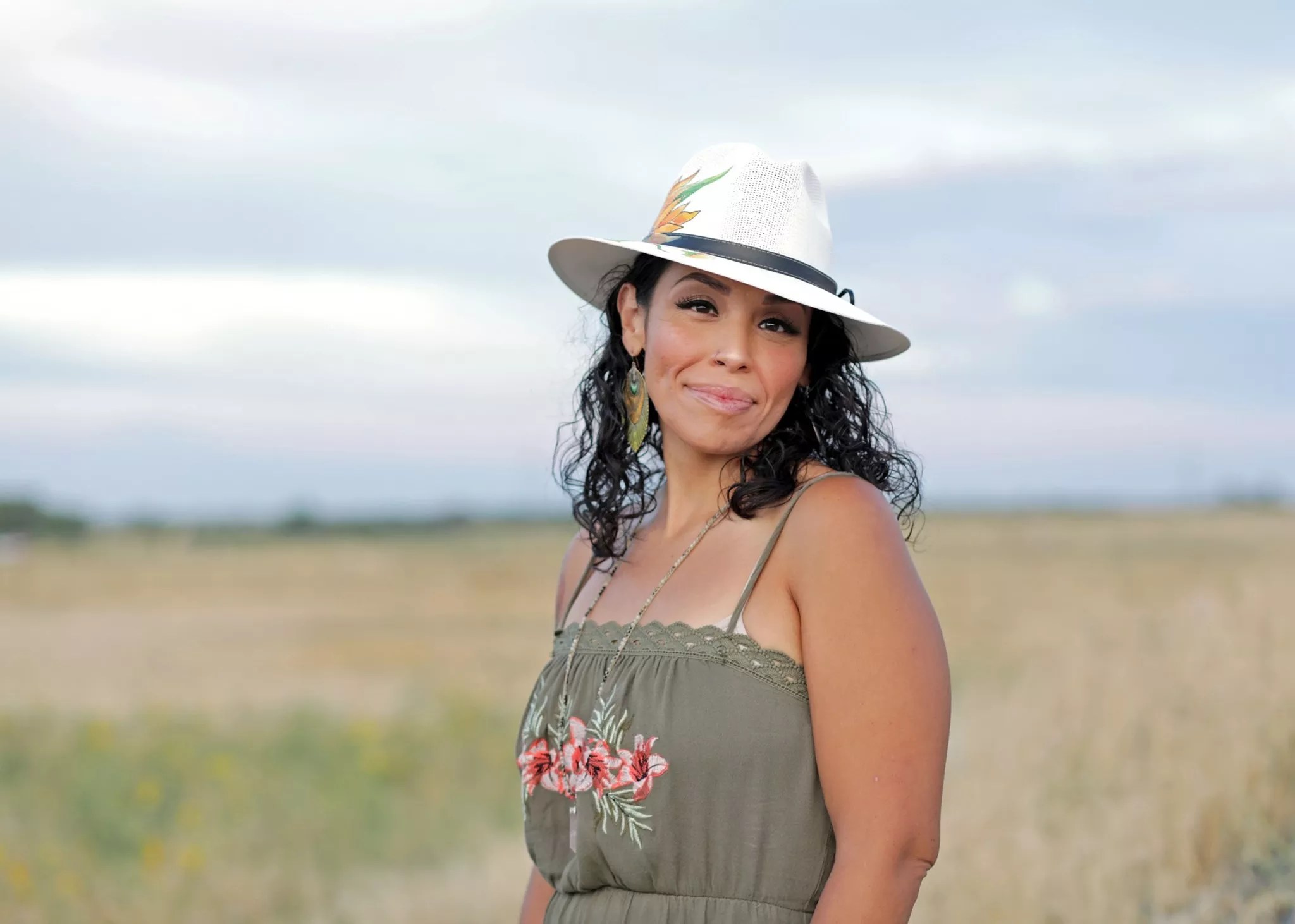
WildEarth Guardians / Flickr

Audio By Carbonatix
In one final marathon, the Environmental Justice Action Task Force, established by House Bill 1266, the Environmental Justice Act, completed its legislative and regulatory policy recommendations at its meeting in Pueblo November 9 and 10.
Going into the final day, a few questions remained regarding the group’s suggestions for practical ways to address environmental justice inequalities across the state, with a focus on disproportionately impacted communities, including how many members of the task force would have to vote for each recommendation in order for it to be included in the report.
The group had gone back and forth throughout its meetings, held every other month starting in December 2021, unable to agree on whether the threshold should be a two-thirds majority or a simple majority. Members of the task force who carry out environmental justice work pushed for a simple majority, arguing that was the best way to ensure community voices were represented. Others, largely members from the oil and gas industry, argued that a two-thirds majority showed stronger support for each recommendation and was consistent with what had been decided at previous meetings.
“Our obligation isn’t to each other, it isn’t to our procedures, it is to Colorado,” countered Renee M. Chacon, a task force member and longtime Commerce City activist. “We have to be accountable to our communities when we go back home.”

Renee M. Chacon hoped to turn her lifetime of activism into policy on the Environmental Justice Action Task Force.
Renee Millard Chacon for City Council Ward 3 Facebook page
And the community seemed to agree, showing up for a public comment session on November 9 that lasted an hour longer than planned because of the number of people who wanted to speak.
“The current requirement for two-thirds majority is manifestly unfair, inequitable, and exactly why this task force and others like it are necessary, to correct the processes and the impacts of environmental and social injustice,” said Velma Campbell, a Pueblo doctor. “The two-thirds majority requirement forces community advocates to get approximately more than half of the remaining task force members’ support for a recommendation, while positions favored by industry or agency representatives can pass the environmental justice task force with no community support.”
According to Tyson Johnston, director of land and business development for Gunnison Energy and co-chair of the task force, one of the biggest challenges for the group was the lack of trust between the task force and the community because of past experiences with environmental racism.
“The people who have participated have been absolutely vital,” Johnston tells Westword. “And from my standpoint, [they] have really changed my understanding, my opinions, and educated me on on a lot of things that are happening within these communities. … It is encouraging to me that we’re putting something together that’s going to actually have results, and my hope is that those results will motivate these communities to really be a part of this even more, and refine this going forward and create something that they do have confidence in, that they do trust in and look forward to working with.”
In order to do that, some of the public commenters suggested, the task force needed to create the most expansive set of recommendations possible rather than shifting environmental justice priorities into a minority report.
“I really want to elevate the voices of people directly impacted by pollution, and by noise, and by dust, and by fear that our kids are going to get sick all the time,” said Patricia Nelson, a parent who’s advocated to set fracking farther back from Bella Romero Academy in Greeley. “Those are the people that should be represented and should be the loudest voices. … We just need to find the strength within ourselves and remember who we’re here to elevate.”
On November 10, the task force members had one last discussion on whether only a simple majority was necessary for a final recommendation. Trisha Oeth, director of environmental health and protection for the Colorado Department of Public Health and Environment, said that while she still thought a two-thirds majority would be stronger, she believed the recommendations would be de-legitimized if the task force didn’t change to a simple majority.
Many, including Johnston, emphasized that the document was very close to two-thirds consensus anyway. And in the end, the task force agreed that recommendations only needed to be supported by a simple majority.
After that, three of the seven sections of the final recommendations passed unanimously: those covering health disparities, best practices for community engagement and the definition of disproportionately impacted communities. The four that passed with some opposition were a section on how environmental justice efforts should be coordinated across the state; a section on new, centralized Environmental Equity and Cumulative Impact Analyses; a section on Supplemental Environmental Projects; and a section on just transition.
Despite the change to a simple-majority requirement for recommendations, there will still be three items in a minority report from the environmental advocates on the task force.
The first concerns the environmental justice coordinating entity. All task force members agreed that, for now, the current CDPHE Environmental Justice Program should oversee the work, and the legislature should evaluate its performance to determine if another entity is needed. The disagreement came over oversight of the program: Should it be through the existing Environmental Justice Advisory Board, a permanent institution established by the same legislation that created the task force, or a separate interagency oversight board?
In their minority report, environmental justice advocates Beatriz Soto, Kimberly Mendoza-Cooke, Hilda Nucete, Meera Fickling, Jamie Valdez, Ean Thomas Tafoya and Chacon will suggest a separate board.
Most of these members – without Mendoza-Cooke and with the addition of toxicologist Uni Blake – will also create a minority report arguing that Environmental Equity and Cumulative Impacts Analyses, which will analyze cumulative impacts of air, water, soil, radiation and other types of pollution for specific areas involved in agency decision-making, should be able to propose the development of new health-based thresholds for pollutants.
According to this group, standards aren’t always protective enough, and communities should be able to have more protection if data indicates it might be needed. But other task force members, including representatives from state agencies like the Air Pollution Control Division and Public Utilities Commission, argued that such proposals could open up the state to litigation.
The final minority report will concern Supplemental Environmental Projects, which are established when an entity chooses to give funds to a community organization rather than pay a fine for violating the law, which happened with the Suncor oil refinery this year. Marsha Nelson of the Colorado Department of Transportation, as well as Valdez, Chacon, Fickling, Tafoya and Soto, said there should be an option for the community to determine whether the entity subject to enforcement can participate in the project selection. The other members agreed that the entity should, because it would not have an incentive to participate in an SEP if it couldn’t be part of the process. The majority of the members did agree that the entity should not have a stronger voice than the community.
Other hot topics that eventually reached unanimous majorities: how stringently the task force’s recommendations for community engagement should apply, how much the state’s just-transition plan should consider expanding, and whether the label “disproportionately impacted community” should be changed.
Throughout the task force’s work, some communities, including Tribal entities, said that the term “disproportionately impacted” carries a negative connotation, defining communities by the harms done to them rather than their strengths. The task force ended up agreeing that the term should be phased out, but determined that the members didn’t have the necessary knowledge to choose a replacement. Instead, they recommended that the term be reevaluated and updated in the near future as the environmental justice work recommended by the task force continues.
“It’s going to be years in the making for implementation,” Tafoya, the task force’s other co-chair, tells Westword. “For us to really begin to unravel hundreds of years of problems, it’s going to take time, and I hope that people stay involved. People are committed to seeing the recommendations implemented.”
After the group approved the recommendations, the Environmental Justice Program staff fine-tuned them for grammar and consistency; the final report was completed by the official deadline of November 14. A letter from the co-chairs was attached to the recommendations, which will be shared with state agencies and the legislature.
Though the process was arduous at times, the task force ended its tenure with celebration.
“I came into this with a lot of skepticism on how we were all going to interact, how we were all going to work together,” Johnston says. “One of the greatest things that I’ve learned through this process is, in all of the political and ideological disagreements that the various groups that are part of this task force may have, overall we’re all really not that different. I really do truly respect everybody who I work with on that task force, and the time and effort and thought that they put into all of this. … We are fortunate enough to get to plant the seed, and I will stick around and make sure it gets watered.”
See all task-force documents, including the final recommendations, here.